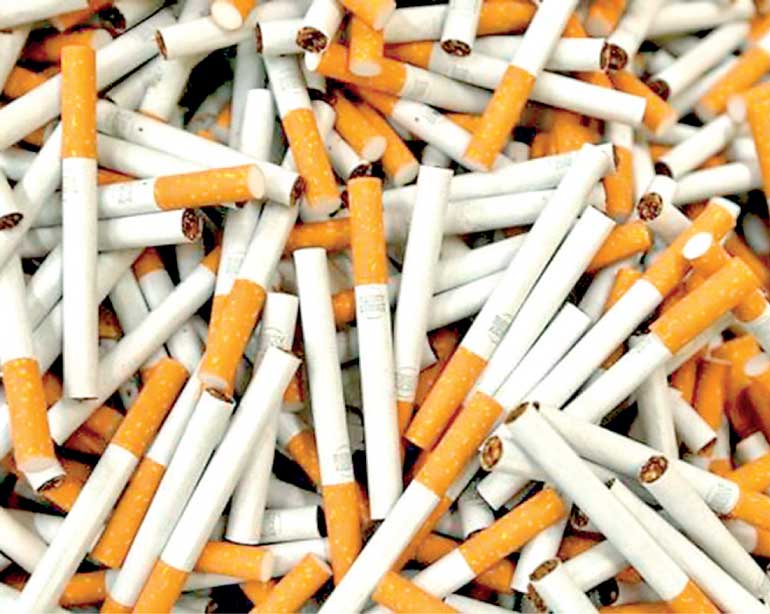Sunday Feb 22, 2026
Sunday Feb 22, 2026
Friday, 19 November 2021 00:00 - - {{hitsCtrl.values.hits}}

By Ananda Jayawickrema
The Government’s Budget proposals for 2022 effected a Rs. 5 price increase for cigarettes, which is a welcome measure to control tobacco incidence in the country.
At Rs. 65 a stick, Sri Lankan cigarettes were reportedly the most expensive in the world in the run up to the Budget presentation. Despite speculation this may prompt the Treasury to hold prices, the Government took a bold and commendable step to increase prices by a further Rs. 5.
The outcomes of this measure are manifold. In the first place, it will put cigarettes beyond the reach of youngsters and price will serve as an impediment for youth to experiment or take up smoking. In addition, smoking is mostly prevalent amongst the poorer segments of society, and with prices increasing this would naturally result in a significant reduction in stick purchases. This would be a boon to uplifting the domestic economy within poorer households, as a disproportionate amount of earnings are spent every month on cigarettes.
On the other hand, the Government will not lose revenue from the sector, as those who continue to smoke will still contribute to the Government exchequer in terms of tax. Less smokers would naturally mean less persons falling victim to the ills of smoking and second-hand smoke. Sri Lanka has a high incidence of Non-Communicable Diseases and smoking is a significant cause of premature deaths and loss of productivity in the market.
By positioning cigarettes at a higher price range, this would effectively drive down consumption, and the resultant improvement in health would also lessen State expenditure on health whilst adding significantly to the workforce and productivity of the country.
Whilst many sections have tried to quantify the lost hours and revenue due to productivity loss from smoking, this remains a difficult task. The National Authority on Tobacco and Alcohol (NATA) estimated the figure at a staggering Rs. 212 billion annually in 2019.
The National Authority on Tobacco and Alcohol has spearheaded tobacco control efforts in the country, and must be commended for constantly impressing upon Government the need to enhance pressure on pricing as an effective means to control consumption. Pricing is also one of the key elements identified by the World Health Organization in its Framework Convention on Tobacco Control to discourage individuals from taking up smoking, and it is commendable that Sri Lanka is now the world leader in this effort.
Whilst some may argue that Rs. 5 is only a small step in terms of pricing pressure, it is in fact a progressive and effective figure when considering the current macro-economic conditions in the country and beyond. This is the first price increase after almost two years, and the positive impacts of this measure will be apparent in terms of health and productivity over the next two years, whilst Government revenue will hold steady.